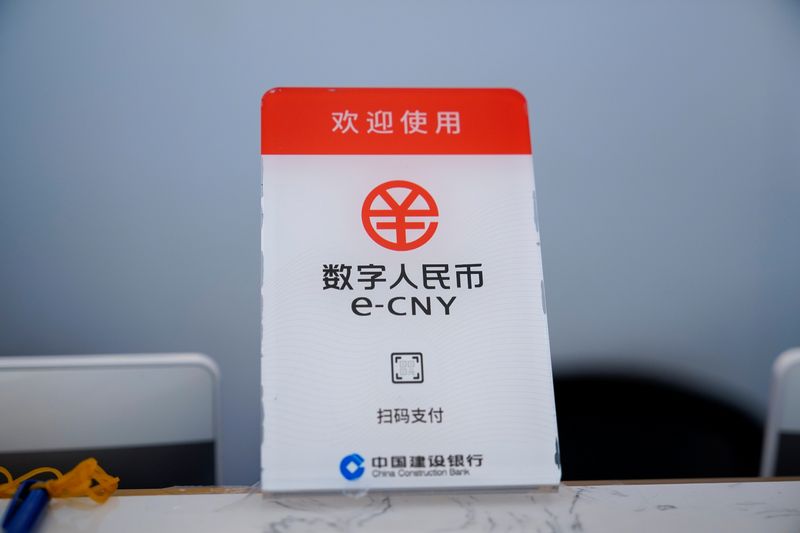By Hannah Lang
(Reuters) - A leading Senate Republican is urging the Biden administration to closely monitor the use of China’s recently launched digital currency during the Beijing Winter Olympics, where the country is expected to showcase the project to foreign visitors.
In a letter sent Thursday to Treasury Secretary Janet Yellen and Secretary of State Antony Blinken, Senator Pat Toomey expressed concern that the Chinese government could use the global event to help its digital yuan, dubbed e-CNY, gain a global foothold. Such an effort could be used to set standards in cross-border payments, as the People’s Bank of China looks to get out ahead of other countries in the race to develop central bank digital currencies, he warned.
“The importance of remaining a leader in the global digital economy and supporting new innovations like digital currencies is a significant domain of strategic competition with other countries, including China,” Toomey said.
Toomey asked the Treasury and State Departments to report back on the adoption rate of the digital yuan by foreign visitors compared to Chinese citizens, the total issuance of e-CNY during the 2022 Winter Olympics and if the rollout of e-CNY can offer any lessons to the U.S. government as it considers developing its own central bank digital currency.
A Treasury Department spokesman declined to comment and the State Department did not respond to a request for comment.
A pilot version of the digital yuan wallet application has been available for downloads in mobile phone app stores in China since Jan. 4.
The use of e-CNY is still limited to 10 major "pilot" cities, plus the site of the Beijing Winter Olympics, which officially began Friday, but has been hampered by people's preference for Ant Group's Alipay and Tencent's WeChat Pay, which dominate China's online payments.
The U.S. is still undecided on developing its own digital currency, with the Federal Reserve pledging not to move forward on any such effort without congressional authorization.

On Thursday, the Federal Reserve Bank of Boston and the Massachusetts Institute of Technology (MIT) unveiled long-awaited technical research and open-source code that could be used as the groundwork for a potential central bank digital currency.
The team behind that effort developed technology that can be adjusted in the future as more policy questions regarding the structure and purpose of a U.S. CBDC are addressed, including how a digital dollar would be intermediated.